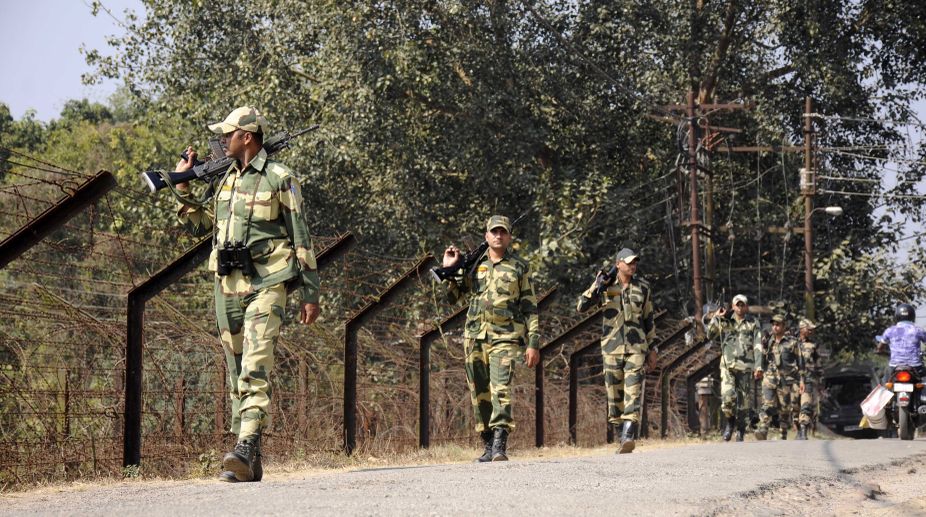Cross-border terrorism from Pakistan is at the root of the current situation in Kashmir and it has also victimised the people of the part of the state occupied by Pakistan, India said on Tuesday dismissing Islamabad’s attempts to raise the Kashmir issue at the UN Human Rights Council (UNHRC) meeting in Geneva.
“Jammu and Kashmir is an integral and inseparable part of India and will always remain so” despite Pakistan’s use of “terrorism as a state policy” for territorial aquisition, Sumit Seth, a First Secretary in India’s UN Mission in Geneva, said on Tuesday while exercising the right of reply to Pakistan’s allegations about India.
Advertisement
“The present situation in the Indian State of Jammu and Kashmir is the direct result of sustained cross-border terrorism emanating from Pakistan,” he said.
“The high number of casualties sustained by Indian security forces is a reflection of the tremendous amount of restraint displayed by them under these difficult circumstances.”
Pakistan’s Permanent Representative in Geneva, Farukh Amil, raked up the Kashmir issue while taking exception to UN Human Right Commissioner Zeid Ra’ad al-Hussein criticising India and Pakistan on Monday for not allowing a fact-finding team to the Indian state and the part occupied by Pakistan.
Amil asserted that reports of atrocities and human rights abuses emanated from the Indian state and not from the part of it occupied by his country and, therefore, questioned al-Hussein equating the two countries.
Amil alleged that al-Hussein’s statement was not based on facts.
Seth in his rejoinder said that India had “a robust institutional framework to ensure adherence to the rule of law and respect for fundamental rights of the people in Kashmir” built on an independent judiciary, the National Human Rights Commission, vibrant civil society and free and vocal media.
The people of the Indian state have regularly exercised their democratic rights, Seth added.
“In contrast, the people of Pakistan, as well as Pakistan, Occupied Kashmir have become victims of sectarian conflict, terrorism and severe economic hardship due to Pakistan’s authoritarian and discriminatory policies in complete disregard of human rights,” Seth said.
When the floor was opened at the council meeting on Tuesday to NGOs and civil society organisations, a motley group of them let loose a volley of propaganda against India.
According to a summary of the proceedings prepared by the HRC, some of these centred on India and Pakistan not allowing a fact-finding mission to the Indian state and the Pakistan-occupied portion of it, while others singled out India.
The Association for the Protection of Women and Children’s Rights said there was a need to focus on the situation in territories under foreign occupation and lumping Kashmir in that category it asserted that human rights violations had increased there because the HRC mission was not allowed in.
Commission Africaine des Promoteurs de la Sante et des Droits de Homme said that terrorism and systematic human rights violations in Kashmir required more attention by the High Commissioner and that unprovoked heavy shelling had resulted in daily deaths of civilians.
A group called Liberation alleged that India was experiencing increasing religious intolerance under the pretext of the protection of the “holy cow”.
Indigenous People of Africa Coordinating Committee claimed that homes of non-Hindu minorities had been systematically destroyed and their products were regularly boycotted.
Centre for Organisation Research and Education said that members of scheduled tribes and castes were victims of rape and honour killings.
A group called Tamil Uzhagam said that human rights activists in Tamil Nadu needed the UNHRC’s protection.











